Comment to Chappelle? The Return of Dave Chappelle and the Future of Comedy
In one of his stand-up routines from the 1970’s, Steve Martin warned audience members about traveling to a different country by describing a recent visit to Paris:
Chapeau means hat. Ouef means egg. It’s like those French have a different word for everything! You never appreciate your own language until you go to a foreign country that doesn’t have the courtesy to speak English.
Here, everything is (con)textual. But how many of us even remember, or retell, this joke? Why is one joke shared, repeated, or refashioned for years to come and another so quickly forgotten? Arguably, most Millennials don’t even remember Martin for his work in stand-up or TV but rather for film, even though much of his work is available on both DVD and online.
Emerging technologies in the digital age have transformed the ways in which information is collected, processed, and transmitted, and, in some fields, the impact of these technologies is becoming clearer. But what will be the fate of the art form we know as stand-up comedy? For a time, a comic didn’t make it until he or she had a TV special or sitcom or a break on the big screen. But maybe that’s not the case anymore.
The Set-up
On June 10 and 13, Dave Chappelle returned to late night television—on The Late Show with David Letterman and The Tonight Show Starring Jimmy Fallon, respectively—his first appearance on these shows since 2008. Chappelle was promoting his now six consecutive shows at the Radio City Music Hall in New York City.
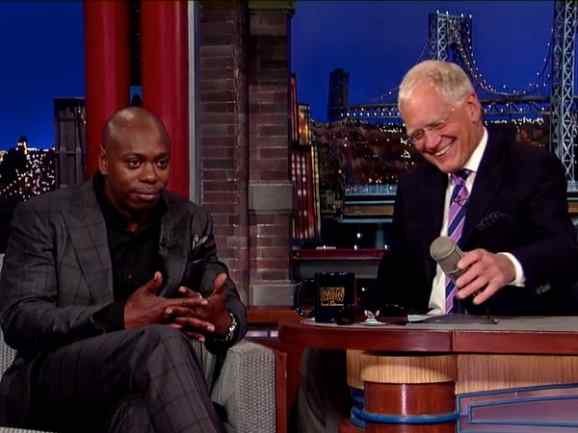
Chappelle was originally scheduled for five shows, but after selling out minutes after they went on sale, an additional five shows were added this week. Reflecting Chappelle’s love for hip-hop (and a bit reminiscent of the reformat of Chappelle’s Show), the shows scheduled for this coming week will include musical acts like Nas, The Roots, Busta Rhymes, Janelle Monáe, and Erykah Badu; Kanye West made a surprise appearance, performing three songs at Friday’s show. As many people probably expect, there has been much excitement in both mainstream media and alternative online sources around these shows. While critics and fans alike speculate about the next phase of Chappelle’s career, this might also be a good time to ask, what is the next phase of comedy, stand-up or otherwise.
Reviews of the first few shows at Radio City are already trickling in, and no one argues that Chappelle’s lost his touch. The toughest review, from the New York Times, noted that many of the jokes “rarely build momentum.” But isn’t this what we love about his stand-up and sketches alike? There’s a stop-start quality to most of them, a unique timing that disrupts our anticipation of the punch line. At its best—that is, when the audience allows the storyteller to do his thing—this approach allows Chappelle to transform from performer to friend (or someone with whom we’d like to be friends). On a good night, the intimacy Chappelle is able to create with his audience is just the thing that allows some jokes to go, well, nowhere. Jason Zinoman, author of the NY Times’ article, does note the “cavernous” atmosphere of Radio City might not be the best suited for Chappelle’s style, I’m not sure if most people would refer to Chappelle as a “rebel,” unless declining a 40 million dollar contract and maintaining some personal or professional integrity qualifies as rebellious. Of course, both ridiculous and ironic as it is, Chappelle’s departure from the show is at least partly responsible for the comedian’s rise to heights of celebrity in which he is now held. Perhaps, following the legacy of Chappelle’s Show, stand-up itself seems a little “less rebellious.”
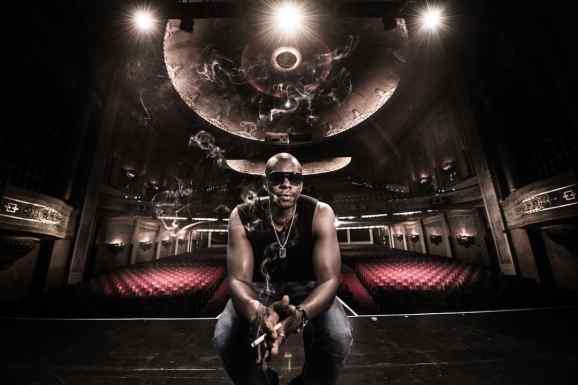
Part of what made Chappelle’s Show so unique was its blend of comedy—stand-up, sketches, and musical guest—and its content’s broad scope. In this model, Chappelle is comic, host, actor, and fan. As strong as his stand-up was—see, Killin’ Them Softly (2000) and For What It’s Worth (2004)—Chappelle’s jokes are best played out as sketches, critiquing contemporary culture and the digital shift—remember the sketch, “If the Internet was a Real Place”?—while using digital effects to accentuate them. Content and production aside, Chappelle seemed to be everywhere. Re-runs of the show were seemingly in constant rotation on Comedy Central and, in 2007, it was syndicated and was airing on multiples channels—and worldwide—throughout the day. DVD sales soared, making the series one of the highest grossing of all time. This is even more impressive considering that the show was also available through iTunes and free online streaming both through Comedy Central and various social media outlets. In addition, various characters and quips spawned a host of fandom and Chappelle remixes. (For more criticism of the show itself, see The Comedy of Dave Chappelle: Critical Essays.)
Ripped out of context, some of these jokes have potentially hazardous consequences, forcing each of us to re-question the boundaries of racial, sexual and political humor. When has a joke gone too far? When does it stop being funny and begin being offensive? When does a tool capable of disrupting oppressive policies and social contradictions get caught in its own web? Chappelle, himself, has cited his own un-comfortability with these blurred boundaries as a reason not to continue the show. Such issues, as well as those of celebrity and our new relationships with art, comedy and performance in the digital age, have hurt the world of stand-up.
The laugh, the silence, the boo, and the heckle are all part of the performance. Critics can’t discount the audience, the mood or aura of the room, when thinking about stand-up. But when does it disrupt the performance, swerving it elsewhere, into something else. Critics and fan alike might look at Chappelle’s performance for the Funny or Die Oddball Comedy Tour last August in Hartford, CT, as an example. According to most news reports, the show was supposed to signal Chappelle’s long-anticipated return; however, it came to a halt when the rowdy crowd’s disrupting jeers and hollers made it impossible for the comedian to perform. His polite responses did little to quell the crowd. Watching the clock tick down, after his contractual twenty-five minutes were up, Chappelle left the stage. There’s a shortlist of artists who stopped performing live because of their celebrity status. . . and perhaps Chappelle’s on this list.
The Punchline
There’s a new joke: On social media, you’ll find a different word for everything. The digital revolution has undeniably changed the comedy, the way it’s delivered and the relationships between the comic and the audience. Just look at viral videos on YouTube, Facebook, Vine, Twitter, and so on. We, the audience, are taking on a much more participatory role not only in sharing, but also in editing, remixing, and creating. It’s more reliant on irony and requires even more audience familiarity or contextualization. One example of this is visible in the 2005 documentary The Aristocrats (based on the joke of the same name that dates back to early vaudeville). While it more aptly shows the evolutionary and transgressive nature of the joke than can be described here, the film really becomes a sort-of meta-joke, a joke about a joke. This is precisely what is happening to a large extent in the world of the viral video, the meme, re-made YouTube post. And while technologies have created new restraints for the comedian, they also present new opportunities, new venues, new dimensions to work within and around. Perhaps the most popular and successful of these platforms may be seen in Funny or Die, the website that compiles user-generated videos as well as original work, with an impressive catalog of famous contributors including, Will Ferrell and Judd Apatow (two of its founders).
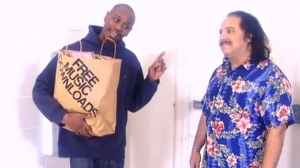
The effects of the digital on the legacy of stand-up are still unknown. Although I’m not suggesting that the art form will die-out completely, I do wonder about its compatibility in the new epoch to come. The artist—the comic—needs to perform, needs the physical space and interaction with an audience to play and work and rework material–and I can’t help wonder how this is possible under the shadow of celebrity and with the new restraints created by the digital age where everyone in the audience has some mobile device by their side–perhaps only half-listening the comic onstage, perhaps more concerned by captured this performance with their phones, transmitting images and texts two various YouTube, Facebook, Twitter, etc., etc. accounts… How frustrating it must be to be a comic who is taken literally and seriously (and not-so-seriously)! In this realm, there is always space for a “comment.” Comment to Chappelle? And there is always a troll in the room.
So there’s a new philosophical question to be asked: What came first, the laugh or the tweet?
In her book, Laughing Mad: The Black Comic Persona in Post-soul America, Bambi Haggins appropriately once referred to Chappelle as a “comic MC.” As MC or d.j., Chappelle recognizes art’s (music, comedy, whatever) diverse influences; he understands their complexities, of how they work together to create something new. By the time we’re young adults, we think we’ve heard all the “shit jokes” there is to tell. Not only does Chappelle know them well, but he can retell them or create a new one that still makes us laugh all these years later. And as his interviews and guest appearances show, he has a way of working with his own status as celebrity. While new comics have entered into the public’s radar, Chappelle left a torch burning on the mantle . . . a torch that has yet to picked up by someone new. Or maybe by Chappelle himself.
If anyone can achieve this level of intimacy with his or her audiences and if anyone can reach the people in the digital realm, it is Chappelle. If it even is Chappelle. That is, if these platforms will even have him—another thread of the joke (see the Jimmy Fallon interview, above). If anyone can effectively find a new multi-modal model for comedy’s future, it will be Chappelle. And he might just have to. This could be the next chapter of his career, and of comedy.
Or just another shit joke.
For Further Reading
Haggins, Bambi. Laughing Mad: The Black Comic Persona in Post-soul America. New Brunswick, NJ: Rutgers University Press, 2007.
Wisniewski, K. A., ed. The Comedy of Dave Chappelle: Critical Essays. Jefferson, NC: McFarland, 2009.
Zinoman, Jason. “Race, Regret and Fatherhood: A Rebel Tones It Down.” New York Times 20 June 2014: C1.
What do you think? Leave a comment.


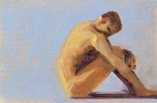
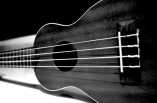
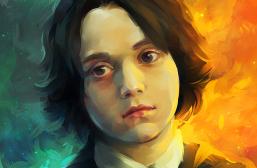
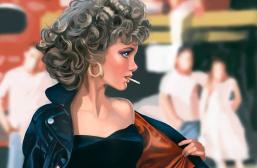
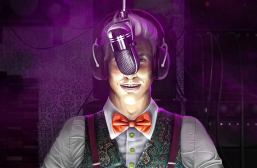

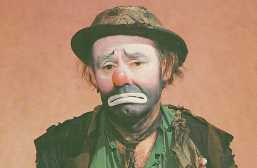

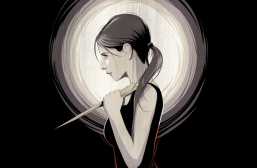
Fantastic.
Great analysis of Chappelle and contemporary comedy.
I love the part where you discuss the role of us, the audience as essential to his comedy.
I absolutely love his show and his stand-up. the world could use a little more Dave Chappelle.
The guy’s comedic genius is on par with the likes of Pryor and Carlin. Glad to see him back and at it.
This man is total class.One of the greats.
He may be a little crazy but madness and greatness are two sides of the same coin, and i’d be thrilled to see him return
But this is the thing. He’s not crazy. It seems like the pressure to continue being “great” and to continue producing shows every week was just getting too him. Hey, who hasn’t been totally stressed by work before? It’s just that with him, he was in a financial place that he could walk away for awhile, enjoy a slower pace of life, and recharge his batteries, so to speak. And he came back when he was ready and (I’m guessing) felt he had good stuff to give to us, the audience. I really respect what he did.
Thanks for the comments. This very question is arguably what’s catapulted his celebrity status to the next level. It’s fascinating–and disturbing– how fans, critics, and the media can turn a simple vacation into such a circus. This is what needs to be evaluated in our culture. Are we so eager to “sell-out” at any cost? Are we so threatened by someone who is willing to walk away from such a big paycheck (no matter what the cost)? $40 million dollars was what he might have been paid, but what it would have cost him (and us all) is unknown.
I would suggest we let Chappelle speak for himself. Unfortunately, our culture forced him into the position to do so–he shouldn’t have to “answer” for anything. But watch the now-famous James Lipton/Actor’s Studio appearance. As Kasey says above: “Class.” Rarely do we see that level of wit and honesty from our celebrities.
Hopefully, we can move passed this moment and allow Chappelle to do what he does…
Original and unpredictable and so enjoyable. I suspect our pleasure from his humor comes at some dark price he pays but man is it exciting to watch this guy.
Great article! I love seeing discussion of stand-up comedy and comedians in general on The Artifice.
Rick James is one of the funniest sketches I have ever seen.
Yeah that, the Racial Draft, and the Charlie Murphy Skits (Rick James). Good stuff. Some laugh out loud funny sketches in between.
If he wants a show again, he should try to get on with HBO. Larry David has enjoyed having creative freedom and working at his own pace for years.
I’m sure HBO, like any other network, still has its constraints. And after so many years off, who would want to go back to a grueling production schedule?
What’s cool about Funny or Die is that it’s free and online–post what you want, when you want. And no formatting issues.
The Chappelle show is the basis for all of my jokes. I need Dave to return so I can be funny.
Life has been a lot less entertaining since Chappelle’s Show went off the air.
I was a big fan when Chappelle’s Show was on air. There were many sketches which were hilarious and thought-provoking such as the black reparations sketch.
There is no one funnier than Dave. True brilliance.
For those interested, there’s an article on Chappelle’s appearances at Radio City in the upcoming New Yorker issue by Hilton Als titled “Who’s Your Daddy?: Dave Chappelle’s Comeback.”
It would be interesting to see how much this has held up after his recent Netflix stand-up special.